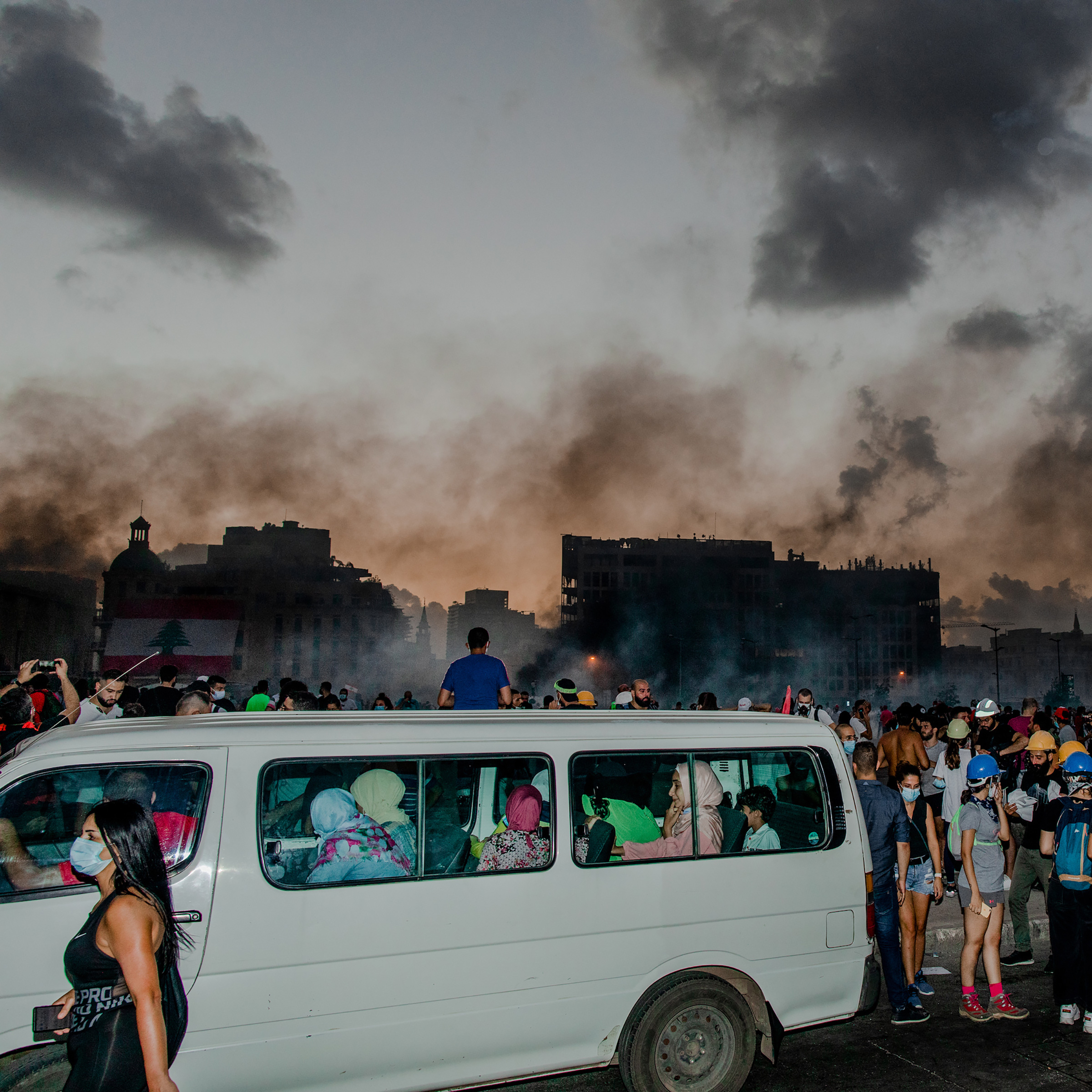
Lebanon was on edge even before last week’s horrific explosions in Beirut’s port. The country recently returned to lockdown following a spike in coronavirus cases. Lebanon had registered just under 5,700 cases and 70 deaths as of this writing, but has been trending in the wrong direction since early July; it registered eight deaths in a single 24-hour span last week, roughly 14% of its total Covid-casualties to that date.
More concerning for the average citizen has been the accelerating effect of the pandemic on the country’s spiraling financial situation (a worry that other emerging markets can relate to). The explosion in Beirut will only amplify those concerns—which pose a threat to the country’s long-term stability—while also shifting the immediate attention to the blasts’ aftermath.
Even before the pandemic, the World Bank estimated that 45 percent of Lebanese society would be living in poverty this year. About 12% of the country’s GDP come from remittances, and 19% from tourism (2018 figures)—both have been hit hard by the abrupt pause to global economic activity and the multiple false starts to get it going again. Food shortages and rolling black outs have upended the daily lives of countless Lebanese, whose purchasing power has rapidly and dramatically shrunk. The Lebanese lira is now worth nearly 85 percent less than it was in autumn; the country’s banking system has been likened to a “ponzi scheme.” De facto capital controls have been in place since November to manage currency flows but have failed to keep the situation in check.
Of course, all of this pales in comparison to the immediate destruction of an explosion of this scale. Unfortunately, the same government that was presiding over the country’s economic descent is also now responsible for managing the emergency response. Violent protests swelled over the weekend. Three ministers, including the Justice Minister, and nine members of parliament have resigned, but the demonstrations continue.
When a country faces the tidal wave of challenges that Lebanon currently does, political differences need to be set aside to deal with the crisis at hand. But in Lebanon, that’s easier said than done—under its current political system, the country’s president is a Maronite Christian, its parliamentary speaker Shia, and its prime minister Sunni, a compromise solution aimed at keeping the peace in Lebanese society. Over the years, Hezbollah—an Iranian proxy military group in other parts of the Middle East but a legitimate political group in Lebanon—has played an increasingly prominent role. The sum result is a system of governance particularly unresponsive to addressing the concerns of Lebanese citizens, and particularly susceptible to corruption and cronyism.
Which brings us to today.
In normal times of tragedy, cash is often seen as the quickest way to assist an afflicted country. Regional and international governments made humanitarian support available quickly. But given Lebanon’s decades-long track record of taking money without actually implementing reforms, there is reluctance to throw money at the country’s political elite. Any forthcoming help will be tied to economic and political reforms—French President Emmanuel Macron had already said as much on his trip to Lebanon. The problem is that those in power in Lebanon skirt reforms, fearful they could jeopardize their position. The elite are also far from convinced that sacrificing the political system they’ve created would even bring in the money necessary or solve the myriad of problems the country is facing. This is not just a problem of the current government, but of Lebanon’s political class more broadly.
The silver-lining is that the explosion could give cover to form a government of national unity, which could provide some renewed hope and boost the possibility of real reforms. Despite the spiraling financial situation—exacerbated by COVID—and the clear need for external support, the government had failed to agree on a path forward prior to the explosion, highlighting the gridlock in Lebanese politics. And while international governments are moved by Lebanon’s current plight, they aren’t convinced that this latest tragedy will force Lebanon to change its ways.
Tragedies are always horrific. But if handled correctly, they can also become opportunities for desperately needed change. If it’s smart, Lebanon won’t let this crisis go to waste. Otherwise, Lebanon is on track to have one of the most punishing years of any country in the world… which in 2020 really is saying something.
More Must-Reads from TIME
- Cybersecurity Experts Are Sounding the Alarm on DOGE
- Meet the 2025 Women of the Year
- The Harsh Truth About Disability Inclusion
- Why Do More Young Adults Have Cancer?
- Colman Domingo Leads With Radical Love
- How to Get Better at Doing Things Alone
- Michelle Zauner Stares Down the Darkness
Contact us at letters@time.com